Dr Khondaker Golam Moazzem

Research Director
E-mail: moazzem@cpd.org.bd
Skype: kgmoazzem
Dr Khondaker Golam Moazzem is a prominent industrial economist in Bangladesh. He currently serves as the Research Director at the Centre for Policy Dialogue (CPD), a leading think tank based in Dhaka. With over 30 years of experience, he has published more than 80 papers, reports, and book chapters on diverse topics, including workers’ rights, working conditions, social safety nets, income tax, power and energy, environment, and Bangladesh’s readymade garment sector.
Aside from this, Dr Moazzem has also conducted extensive research on various subjects, including gender equality, social justice, and environmental sustainability. He actively participates in various policy discussions aimed at improving labour practices and promoting the use of clean and renewable energy as well. Dr Moazzem is also an avid writer, contributing regularly to various newspapers and policy-related websites.
In addition to this, Dr Moazzem has a strong reputation as a policymaker and collaborates extensively with various government committees and trade bodies. These collaborations include active participation in the formulation of the Industrial Policy of Bangladesh (2010 and 2016) and membership in the Committee on Trade Facilitation established by the Ministry of Commerce (MoC). He is also a member of the Eminent Group established by the External Resource Division (ERD) and has previously served as a member of the Advisory Board of the Accord, Bangladesh. Additionally, he is a member of the panel of advisors for Federation of Bangladesh Chambers of Commerce & Industries (FBCCI), the apex trade body of Bangladesh, and works as an advisor to the Bangladesh Technical Education Board.
Curriculum Vitae
1. Global Value Chains, World of Work, Gender and Environment
Fahmida Khatun and K G Moazzem. 2008. Gender and Trade Liberalisation in Bangladesh: The Case of the Readymade Garments. Centre for Policy Dialogue (CPD), Dhaka. Summary available at: https://cpd.org.bd/cpd-research-monograph-gender-trade-liberalisation-rmg-cited-academic-journal/
Moazzem, K.G. and M.I. Chowdhury. 2016 “Green growth in Bangladesh – Improving regulations, monitoring and enforcement in the textile sector” SANDEE Policy Brief, Number 96-16, January 2016. Available at: http://www.sandeeonline.org/uploads/documents/publication/1080_PUB_Policy_Brief_96_Mehruna.pdf
Moazzem, K.G., A.S.M.S.A. Shibly & F.S. Chowdhury (2021). Vulnerability, Resilience and Recovery in Readymade Garment (RMG) Enterprises of Bangladesh: An Assessment of Impact and Implications of the COVID Pandemic, CPD-CED Publication, Dhaka. Related materials are available at: https://cpd.org.bd/resources/2021/07/Vulnerability-Resilience-and-Recovery-in-Readymade-Garment-Enterprises-of-Bangladesh.pdf
Moazzem, K.G., F. Khatun, K. Hewage, T. Ahmed & A. Pathirana (2021). “Recovery of the Apparel Value Chain in Bangladesh and Sri Lanka: Is There a Value-chain Based Solution Possible?”, Southern Voice Working Paper, A brief is available at: http://southernvoice.org/can-value-chain-based-measures-spur-the-recovery-of-apparel-suppliers-and-workers/
Moazzem, K.G. et al. (forthcoming). Impact of COVID-19 on the Labour Market: Policy Proposals for Trade Union on Employment, Gender and Social Security for Sustainable Recovery, CPD-BILS Working Paper, Dhaka. Related materials are available at: https://cpd.org.bd/effective-social-dialogues-key-to-recovery-of-labour-market-during-covid-19/
Moazzem, K.G. and T. Ahmed (forthcoming). Corporate Accountability of the RMG Sector in view of COVID Pandemic: Challenges in Ensuring Workers’ Well-being, CPD-Shojag Coalition Working Paper, Dhaka. Related materials are available at: https://cpd.org.bd/corporate-accountability-practices-in-the-rmg-sector-could-ensure-workers-well-being-during-the-covid-pandemic-period/
Moazzem, K.G., A. Khandker (2021). EU’s EBA & Prospect of GSP+ for Bangladesh: Addressing Challenges related to Labour Laws and Rights, CPD-Network Matters Working Paper, Dhaka. Related materials are available at: https://cpd.org.bd/eus-eba-prospect-of-gsp-for-bangladesh/
Moazzem, K.G. and Reza, M.M. (2020). Growth of Manufacturing Employment in the Changing Context of Trade and Trade-Related Policies. In Muqtada, M. (Eds). Quest for Inclusive Growth in Bangladesh: An Employment-focused Strategy. Singapore: Springer. Available at: https://link.springer.com/chapter/10.1007/978-981-15-7614-0_5
Moazzem, K.G. and M.R. Ahmad. 2018. ‘Data Universe’ of Bangladesh’s RMG Enterprises: How to Meet the Data Gap? Policy Brief 2018 (11). Centre for Policy Dialogue (CPD), Dhaka.
Moazzem, K. G. and Reza, M. M. 2018. Growth of Employment in the Manufacturing Sector. CPD Working Paper 118. Dhaka: Centre for Policy Dialogue (CPD). Available at: https://cpd.org.bd/resources/2018/08/CPD-Working-Paper-118-Growth-of-Employment-in-the-Manufacturing-Sector.pdf
Moazzem, K. G. and Arfanuzzaman, M. 2018. Livelihood Challenges of RMG Workers: Exploring Scopes within the Structure of Minimum Wages and Beyond. CPD Working Paper 122. Dhaka: Centre for Policy Dialogue (CPD). Available at: https://cpd.org.bd/resources/2018/12/CPD-Working-Paper-122-Livelihood-Challenges-of-RMG-Workers.pdf
Moazzem, K. G. and Radia, M. A. 2018. ‘Data Universe’ of Bangladesh’s RMG Enterprises: Key Features and Limitations. CPD Working Paper 123. Dhaka: Centre for Policy Dialogue (CPD). Available at:https://cpd.org.bd/resources/2019/01/CPD-Working-Paper-123-Data-Universe%E2%80%99-of-Bangladesh%E2%80%99s-RMG-Enterprises.pdf
Rahman, M. and Moazzem, K. G. 2017. “The Legacy of Rana Plaza: Improving Labour and Social Standards in Bangladesh’s Apparel Industry.” In Hira, A. and Benson-Rea, M. (eds.) Governing Corporate Social Responsibility in the Apparel Industry After Rana Plaza. New York: Palgrave Macmillan.
Moazzem, K.G., M.U Ahmed and A. Islam. 2015. Wage Fixing Institutions and Their Impacts in Major Garment Producing Countries: Case of Bangladesh. Paper submitted to the ILO, Geneva.
Moazzem, K. G. 2014. “Transformation of the Export-oriented, Ready-made Garment Sector of Bangladesh: Changes, Challenges and the Future Outlook” in Dirk Willem te Velde (ed.) Enhancing Productivity in Bangladesh’s Garment Sector: Current Policy and Research Debates, DEGRP Policy Essays, September 2014.
Moazzem, K.G. 2014. Garments Sector Transparency Initiative: Feasibility Study, Garments Sector Transparency Initiative, Berlin and Centre for Policy Dialogue, Dhaka.
Moazzem, K.G., S. Raz, D. Miller, C. Schlangen and I. V. Sluijs. 2013. Estimating a Living Minimum Wage for the Ready Made Garment Sector in Bangladesh, Centre for Policy Dialogue (CPD) and Berenschot, The Netherlands.
Moazzem, K.G. and F. Sehrin. 2018. “An Exploratory Study on Technological Upgradation in Bangladesh’s Apparels Sector in the Dynamics and Changes in the Regional Value Chain” to be published as book chapter in the book titled Strengthening the Textile and Clothing Sector in South Asia, ADB, India.
M. Rahman, D. Bhattacharya and K. G. Moazzem. 2007. Bangladesh’s Apparel Sector in Post-MFA Period: A Benchmarking Study on the Ongoing Restructuring Process. Centre for Policy Dialogue (CPD).
Moazzem. K. G. and S. R. Shimon. 2007. “Technological Restructuring in the Apparel Sector of Bangladesh in View of MFA Phase Out: Impact and Implications” published in the Proceedings of International Technology, Education and Development Conference, Spain, March.
Bhattacharya, Debapriya and K. G. Moazzem. 2013. Least Developed Countries (LDCs) in the Global Value Chain (GVC): Trends, Determinants and Challenges, CPD Working Paper 104, Centre for Policy Dialogue (CPD).
Moazzem, K.G. and K. Rayan. 2014. Promoting of Inclusive Businesses in Bangladesh: Prospects and Challenges in Agribusiness. Katalyst, Dhaka.
Moazzem, K.G. and Farzana Sehrin. 2016. ‘Economic Upgrading in Bangladesh’s Apparel value Chain during Post-MFA Period: An Exploratory Analysis” in the South Asia Economic Journal, 17(1), pp.73-93. Sage Publications. New Delhi.
2. Global Value Chains, Decent Employment, Living Wages and Social Dialogue
Moazzem, K.G. and Shibly, A.S.A. (2020). Challenges for the Marginalised Youth in Accessing Jobs: How Effective is Public Service Delivery? CPD Working Paper 132. Dhaka: Centre for Policy Dialogue (CPD). Available at: https://cpd.org.bd/resources/2020/03/CPD-Working-Paper-132-Challenges-for-the-Marginalised-Youth-in-Accessing-Jobs.pdf
Moazzem, K.G., Ahmed, T., Shibly, A.S.A., Taznur, T. (2020). The Crisis in the World of Work in view of COVID-19: Is the Partnership across the RMG Value Chain in Reverse Order? CPD-FES Policy Brief. Dhaka: Centre for Policy Dialogue (CPD) and Friedrich-Ebert-Stiftung (FES). Available at: https://cpd.org.bd/resources/2020/08/CPD-FES-Policy-Brief-The-crisis-in-the-world-of-work-in-view-of-covid-19.pdf
Moazzem, K.G. (2020). “Strengthening Global Partnerships for Empowering People and Ensuring 57 Inclusiveness (SDG 17)” in Rahman, M. (Ed). (2020). Four years of SDGs in Bangladesh: Non-state actors as delivery partners. Dhaka: Citizen’s Platform for SDGs, Bangladesh.
Moazzem, K.G. and Shibly, A.S.A. (2020). Challenges for the Marginalised Youth in Accessing Jobs: How Effective is Public Service Delivery? CPD Working Paper 132. Dhaka: Centre for Policy Dialogue (CPD).
Moazzem, K.G, F. B. Halim (2019). “Job Creation in the Manufacturing Sector as a Strategy for Sustainable Economic Growth in Bangladesh” in Prof. Sachin Chaturvedi, Dr. Sabyasachi Saha et al. Manufacturing and Jobs in South Asia: Strategy for Sustainable Economic Growth, Springer. Singapore. Available at: https://link.springer.com/chapter/10.1007/978-981-10-8381-5_2
Moazzem, K.G. and M. Ali (2019). Report on The Power and Energy Sector of Bangladesh: Challenges of Moving beyond the Transition State, Centre for Policy Dialogue (CPD), available at: https://cpd.org.bd/resources/2019/03/The-Power-and-Energy-Sector-of-Bangladesh.pdf
Moazzem, K. G. and Reza, M. M. 2018. Growth of Employment in the Manufacturing Sector. CPD Working Paper 118. Dhaka: Centre for Policy Dialogue (CPD). Available at: https://cpd.org.bd/resources/2018/08/CPD-Working-Paper-118-Growth-of-Employment-in-the-Manufacturing-Sector.pdf
Moazzem, K.G., S. F. B. Halim and M. Shafayat. 2018. Can a Sustaianble Inspection System be Developed?: The Case of RMG Sector in Bangladesh, Policy Brief 2018 (12). Centre for Policy Dialogue (CPD), Dhaka.
Moazzem, K.G. and S.S. Azim. 2018. Workers’ Organisaitons in RMG Enterprises: How to Address Institutional Challenges?, Policy Brief 2018 (13). Centre for Policy Dialogue (CPD), Dhaka.
Moazzem, K.G. and Md. Arfanuzzaman. 2018. Are Subcontractee Enterprises Able to Upgrade?: Insights from a Case Study, Policy Brief 2018 (14). Centre for Policy Dialogue (CPD), Dhaka.
Moazzem, K.G., M. Arfanuzzaman, F. B. Halim, M. M Reza and S.S. Azim. 2018. Performance of EPZ RMG Enterprises: Are They Still Better Compared to Non-EPZ Enterprises?, Policy Brief 2018 (13). Centre for Policy Dialogue (CPD), Dhaka.
Moazzem, K. G., Halim, S. F. B. and Shafayat, M. 2018. Can a Sustainable Inspection System be Developed?: The Case of RMG Sector in Bangladesh. Policy Brief 12. Dhaka: Centre for Policy Dialogue (CPD). Available at: https://cpd.org.bd/resources/2018/09/PB-12-Can-a-Sustainable-Inspection-System-be-Developed-The-Case-of-RMG-Sector-in-Bangladesh.pdf
Moazzem, K. G. and Azim, S. S. 2018. Workers’ Organisations in RMG Enterprises: How to Address Institutional Challenges? Policy Brief 13. Dhaka: Centre for Policy Dialogue (CPD). Available at: https://cpd.org.bd/resources/2018/09/PB-13-Workers%E2%80%99-Organisations-in-RMG-Enterprises-How-to-Address-Institutional-Challenges.pdf
Moazzem, K. G. and Arfanuzzaman, M. 2018. Are Subcontractee Enterprises Able to Upgrade?: Insights from a Case Study. Policy Brief 14. Dhaka: Centre for Policy Dialogue (CPD). Available at: https://cpd.org.bd/resources/2018/09/PB-14-Are-Subcontractee-Enterprises-Able-to-Upgrade-Insights-from-a-Case-Study.pdf
Moazzem, K. G., Arfanuzzaman, M., Halim, F. B., Reza, M. M. and Azim, S. S. 2018. Performance of EPZ RMG Enterprises: Are They Still Better Compared to Non-EPZ Enterprises? Policy Brief 15. Dhaka: Centre for Policy Dialogue (CPD). Available at: https://cpd.org.bd/resources/2018/09/PB-15-Performance-of-EPZ-RMG-Enterprises-Are-They-Still-Better-Compared-to-Non-EPZ-Enterprises.pdf
Moazzem, K. G., Khandker, A., Radia, M. A. and Ali, S. 2017. Strengthening the Social Dialogue Process within a Weak Enabling Environment: The Case of Bangladesh’s RMG Study. CPD Monograph 9. Dhaka: Centre for Policy Dialogue (CPD).
Moazzem, K.G., Adiba Afros, Kishore Kumer Basak and Farzana Sefrin. 2014. One Year after the Rana Plaza Tragey: Where Do We Stand?-The Victims, the Sector and theValue Chain, Centre for Policy Dialogue (CPD).
Moazzem, K.G., Adiba Afros and Farzana Sehrin. 2014. Rana Plaza Tragedy and Beyond: A Follow Up on Commitments and Delivery, Centre for Policy Dialogue (CPD) and Canada Fund for Local Initiatives.
Moazzem, K.G. and Meherun Nesa. 2013. 100 Days of Rana Plaza Tragedy: A report on Commitments and Delivery. Centre for Policy Dialogue (CPD).
Moazzem, K. G. and Khandker, A. 2016. Post-Rana Plaza Developments in Bangladesh: Towards Building a Responsible Supply Chain in the Apparel Sector. Dhaka: Centre for Policy Dialogue (CPD) and Pathak Shamabesh.
Moazzem, K.G. and Abeer Khandker. 2016. Post Rana Developments in Bangladesh: Towards Building a Responsible Supply Chain in the Apparels Sector. Dhaka: Centre for Policy Dialogue (CPD) and Pathak Shamabesh.
Moazzem, K. G. and K. Rayan (2016). “‘Shut-Down Rule’ vs. ‘Closure’: Which one is relevant on closed garment factories of Bangladesh?” Bangladesh Journal of Political Economy, Volume 31, Number 3, January 2016. Pp 371-384; available at: http://bea-bd.org/site/images/pdf/vol313.pdf
Moazzem, K.G. and K. K. Bashak. Unpublished. Margin and Its Relation with Firm Level Compliance: Illustration of the Bangladesh Apparel Value Chain, CPD Occasional Paper, Centre for Policy Dialogue (CPD), Dhaka.
Moazzem, K.G. and Raz, S. 2014. Minimum Wage in the RMG Sector of Bangladesh: Definition, Determination Method and Levels. CPD Working Paper 106.
Moazzem, K.G. and Ariful Islam, 2015. Moving beyond the Shadow of the Rana Plaza Tragedy: In Search of a Closure and Restructuring Strategy. Fourth Monitoring Report. Centre for Policy Dialogue (CPD).
Moazzem, K.G. and S. Raz. 2012. Export of Brazil’s RMG related Products to Bangladesh: Scopes for Match-Making under the CPD-GIZ Study on “Enhancing Bilateral Trade between Brazil and Bangladesh”, November. GIZ, Dhaka.
Moazzem, K. G. and T. Rahman. 2011. “Development of the value chain in the textile and clothing sector of Bangladesh: Is there a role for regional trade agreements?” in the book titled Fighting Irrelevance: The Role of Regional Trade Agreements in International Production Networks in Asia published by the Asia-Pacific Research and Training Network on Trade (ARTNeT). Bangkok.
3. LDC Graduation, Regional Trade, WTO and Connectivity related Issues
Moazzem, K. G. and Arno, A. 2018. “Structural transformation of Bangladesh economy: Role of smooth transition after graduation”. In Bhattacharya, D. (Ed.). Bangladesh’s Graduation from the Least Developed Countries Group: Pitfalls and Promises. London: Routledge.
Moazzem, K. G. and K. K. Basak. 2013. “Pruning the SAFTA Sensitive List of Bangladesh: Its Scope, Methods and Selection of Products” in the South Asia Economic Journal, 14(2) 231–260, SAGE Publishers, New Delhi.
Moazzem, K.G. and M.I. Chowdhury. 2012. Chapter 14.”Value Chain in the Light Engineering Sector of Bangladesh: Challenges towards the Development of Regional Linkages” in the book titled Changing Structure of International Trade and Investment in South Asia: Implications for Growth and Development, to be published by the Oxford University Press, India.
Moazzem, K.G., Chowdhury, M.I. and Raz, S. 2014. Bilateral Free Trade Agreements (FTAs): Opportunities and Challenges for Bangladesh – Framework Issues. CPD Working Paper 107.
Ivar Kolstad, Arne Wiig, and K G Moazzem. 2014. Returns to education among entrepreneurs in Bangladesh. Journal of Asian Economics 34 (2014) 54–65
Moazzem, K.G. and F. Sehrin. 2014. Coordinated Development of Manufacturing Industry in South Asia: Case of Bangladesh. SACEPS. Kathmandu.
Moazzem, K.G. and T. Ahmaed (2020). Impact of COVID 19 and Implications for Its Graduation from LDC Group, report submitted to the UNCTAD.
Moazzem, K. G. and Arno, A. (2019). CPD Policy Brief 3 on ‘Business as Usual’ Trend of Structural Transformation: Can this Ensure Graduation with Momentum?, CPD, Dhaka.
Moazzem, K. G. 2017. “Cross-border Connectivity Initiatives across South Asia: Would the Broader Region-wide Connectivity be Ensured?” In De, P. and Rahman, M. (Eds.) Regional Integration in South Asia: Essays in Honour of Dr. M. Rahmatullah. New Delhi: KW Publishers Pvt Ltd.
Moazzem, K.G., M.I. Chowdhury and F. Sehrin (2018). Chapter VIII titled Regional Investment Cooperation for a South Asia Economic Union in the volume titled Next Steps to South Asian Economic Union – A Study Prepared on Regional Economic Integration (Phase II), SAARC Secretariat, Kathmandu.
Moazzem, K. G. 2017. “Cross-border Connectivity Initiatives across South Asia: Would the Broader Region-wide Connectivity be Ensured?” In De, P. and Rahman, M. (Eds.) Regional Integration in South Asia: Essays in Honour of Dr. M. Rahmatullah. New Delhi: KW Publishers Pvt Ltd.
Moazzem, K. G. and Radia, M. A. 2018. Trade and connectivity in the BIMSTEC region: Questions of ‘incremental benefits’ for the member countries. In De, P. (Ed.). Twenty Years of BIMSTEC: Promoting Regional Cooperation and Integration in the Bay of Bengal Region. New Delhi: KW Publishers Pvt Ltd.
Moazzem, K. G. and Radia, M. A. 2018. Trade and connectivity in the BIMSTEC region: Questions of ‘incremental benefits’ for the member countries. In De, P. (Ed.). Twenty Years of BIMSTEC: Promoting Regional Cooperation and Integration in the Bay of Bengal Region. New Delhi: KW Publishers Pvt Ltd.
Moazzem, K. G. (2017). “Cross-border Connectivity Initiatives across South Asia: Would the Broader Region-wide Connectivity be Ensured?” In De, P. and Rahman, M. (eds.) Regional Integration in South Asia: Essays in Honour of Dr. M. Rahmatullah. New Delhi: KW Publishers Pvt Ltd. [Launched in October 2016]
Rahman, M., Moazzem, K. G., Chowdhury, M. I. and Sehrin, F. (2016). “Bangladesh: Perspectives on Deepening Cross-border Links.” In Plummer, M. G., Morgan, P. J. and Wignaraja, G. (eds.) Connecting Asia: Infrastructure for Integrating South and Southeast Asia. Cheshire: Asian Development Bank Institute (ADBI) and Edward Elgar Publishing.
Rahman, M., K.G. Moazzem, M I Chowdhury and F Sehrin. 2015. Connecting South Asia and Southeast Asia: A Bangladesh Country Study, ADBI Working Paper Series No.500, Tokyo, September.
Rahman, Mustafizur and KG Moazzem Mehruna Islam Chowdhury and Farzana Sehrin. 2014. Connecting South Asia and Southeast Asia, Bangladesh Country Study Paper. ADBI Working Paper Series, Tokyo.
Moazzem, K.G. 2014. “A Note on Ninth WTO Ministerial Conference: Issues, Concerns and Implications for Bangladesh” in the Journal of International Affairs, Dhaka.
Moazzem, K.G., N. Ahmed, N. Manzur and M. I. Chowdhury. 2012. Development of a Framework for a Comprehensive Trade Policy for Bangladesh. CPD Working Paper 100. Centre for Policy Dialogue (CPD), Dhaka.
Moazzem, K.G. 2014. “Regional Investment Cooperation in South Asia: Policy Issues” in the book titled Regional Trade and Economic Cooperation in South Asia: Trends, Challenges and Prospects, Commonwealth Secretariat, London.
Moazzem, K.G. and Saifa Raz. 2014. “Foreign Direct Investment for Development and Productive Capacity Building in LDCs” in the Book titled Istanbul Programme of Action: Monitoring Deliverables, Tracking Progress. The Commonwealth.
Moazzem, K.G. 2015. “Enhancing FDI Flow in South Asia: Exploring a Framework for Regional Cooperation.” SARCist, March 2015.
Moazzem, K.G., K.K Bashak and S. Raz. 2014. Investment and Financing in the BCIM EC: Opportunities, Challenges and Policies, BIISS and CPD, Dhaka.
Khatun, F., Bhattacharya, D., Rahman, M., Moazzem, K.G., Khan, T.I., Sabbih, M.A. and Saadat, S.Y. (2020). Four years of SDGs in Bangladesh: Measuring progress and charting the path forward. Dhaka: Centre for Policy Dialogue (CPD) and Citizen’s Platform for SDGs, Bangladesh.
Moazzem, K.G. (2021). BIMSTEC cooperation on trade: How to ensure incremental growth in intra-regional trade? Available at https://www.orfonline.org/expert-speak/bimstec-cooperation-trade-how-ensure-incremental-growth-intra-regional-trade/?amp
Rahman, M. and Moazzem, K.G. 2014. “Development of the Private Sector in South Asia: Addressing the Challenges for Building Competitiveness”. Institute of Policy Studies of Sri Lanka (IPS). Colombo.
Moazzem, K.G. (2020). Bilateral FTAs for Bangladesh: Identifying the ‘Natural Partners’. In Raihan, S. and De, P. (Eds). Trade and Regional Integration in South Asia: A Tribute to Saman Kelegama. Singapore: Springer.
Moazzem, K.G (2014). Contributed in section 6 on “State of production and investment in the manufacturing sector during the period of political violence, Production and investment in the manufacturing sector during the period of political violence, instability and uncertainty” in the report on Analytical Review of Bangladesh’s Macroeconomic Performance in Fiscal Year 2014, Centre for Policy Dialogue (CPD), Dhaka.
Moazzem, K.G (2014). Contributed in section 3 on Private Investment in the post-election year: Why It did not pick-up? In the report on State of the Bangladesh Economy in Fiscal Year 2015 (First Reading), Centre for Policy Dialogue (CPD), Dhaka.
Moazzem, K.G (2016). Contributed in section 4 on “Assessment of progress of Fast Track projects” in the report on State of the Bangladesh Economy in FY2015 and the Closure of Sixth Five Year Plan, Centre for Policy Dialogue (CPD), Dhaka.
Moazzem, K.G (2015). Contributed in section 7 on “Challenges confronted by the manufacturing sector: Reforms needed” in the report on State of the Bangladesh Economy in FY2015-16 First Reading State of the Bangladesh Economy in FY2016-17 Second Reading, Centre for Policy Dialogue (CPD), Dhaka.
Moazzem, K.G (2018). Contributed in section 4 on “Promoting private investment: How to strengthen policy instruments?” in the report on CPD’s Budget Recommendations for the National Budget on FY2017-18, Centre for Policy Dialogue (CPD), Dhaka.
Moazzem, K.G (2018). Contributed in section 4 on “Private investment in Bangladesh: Challenges for development of SMEs” in the report on “State of Bangladesh Economy 2018-19 and Upcoming National Elections Priorities for Electoral Debates”, Centre for Policy Dialogue (CPD), Dhaka.
Moazzem, K.G (2020). Contributed in section 3 on “Early assessment of BDT5,000 crore (emergency) incentive package: will the target groups get the benefits?” in the report on A Rapid Assessment of Stimulus Packages and Relief Measures: Will the Target Groups Get the Benefits?, Centre for Policy Dialogue (CPD), Dhaka.
Moazzem, K.G (2020). Contributed in section 4 on “Early assessment of BDT20,000 crore: will the target groups get the benefits?: will the target groups get the benefits?” in the report on A Rapid Assessment of Stimulus Packages and Relief Measures: Will the Target Groups Get the Benefits?, Centre for Policy Dialogue (CPD), Dhaka.
Moazzem, K.G (2017). Contributed in section 4 on “Recent volatility in the capital market: To what extent institutional investors contribute to this?” in the report on State of the Bangladesh Economy in FY2016-17 Third Reading, Centre for Policy Dialogue (CPD), Dhaka.
Moazzem, K.G (2018). Contributed in section 5 on “Capital Market at Bay” in the report on State of the Bangladesh Economy in FY2017-18 Third Reading, Centre for Policy Dialogue (CPD), Dhaka
Moazzem, K.G. and Sehrin, F. 2015. Informal Cattle Trade between Bangladesh and India. SARCist, June 2015.
Moazzem, K.G (2018). Contributed in section 4 “Bullish and bearish trends in the capital market: role of institutional investors and regulators” in the report on State of the Bangladesh Economy in FY2017-18 Second Reading, Centre for Policy Dialogue (CPD), Dhaka.
Moazzem, K.G (2018). Contributed in section 4 on “Recent volatility in the capital market: to what extent institutional investors contribute to this?” in the report on State of the Bangladesh Economy in FY2017-18, Centre for Policy Dialogue (CPD), Dhaka.
Moazzem, K.G (2018). Contributed in section 4 on “Capital Market in Crisis” in the report on State of the Bangladesh Economy in FY2019-20 First Reading, Centre for Policy Dialogue (CPD), Dhaka.
4. Clean Energy and Power
Moazzem, K.G. and A.S.A. Shibly (2020). The Power Sector in the National Budget for FY2020-21: An Analysis of Allocative Priorities and Alternate Proposals. CPD Policy Brief 2020 (5). Dhaka: Centre for Policy Dialogue (CPD). available at: https://cpd.org.bd/resources/2020/09/CPD_PolicyBrief-05-2020-The-Power-Sector-in-the-National-Budget-for-FY2020-21.pdf
Moazzem, K.G. and A.S.M. Shibly (2020). ‘Abandoning Coal in Power Generation: Government Initiatives & Way Forward’. Presentation is available at: link: https://cpd.org.bd/resources/2020/09/Presentation-on-Abandoning-Coal-in-Power-Generation-1.pdf).
Moazzem, K.G. and H. M. Preoty (2021). “Proposed Power System Master Plan (PSMP): An Analysis of Analytical Frame, Methodology and Factors for Demand Side Analysis”, The presentation is available at: https://cpd.org.bd/resources/2021/03/Presentation-on-Proposed-PESMP.pdf
Moazzem, K.G. and A.S.M. Shibly (2020). “Power and Energy Sector in the Upcoming 8th Five Year Plan: Context Analysis with regard to Its Outlook, Focus and Strategies” The presentation is available at: https://cpd.org.bd/resources/2020/12/Presentation-on-Reflections-of-the-Power-Sector-in-the-8th-FYP.pdf
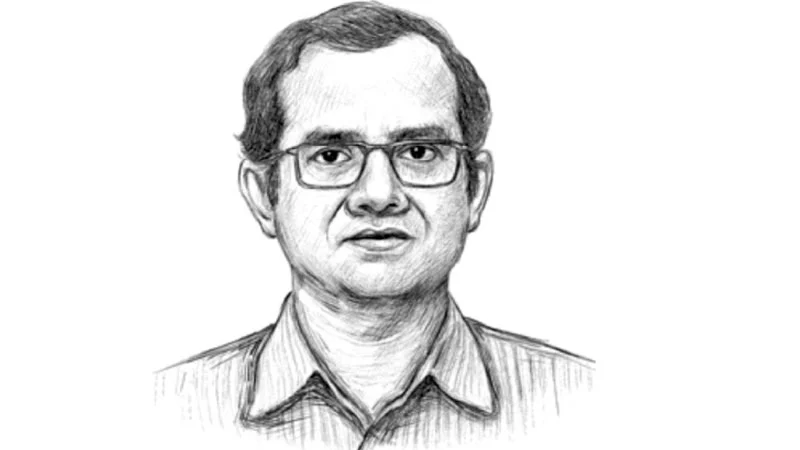
নতুন সরকারের মন্ত্রী হওয়ার ‘যোগ্যতা’ কী – খন্দকার গোলাম মোয়াজ্জেম
ত্রয়োদশ জাতীয় সংসদ নির্বাচনে নিরঙ্কুশ সংখ্যাগরিষ্ঠতা পাওয়া বিএনপি সরকার গঠন করতে যাচ্ছে। মন্ত্রিসভাও শপথ নিতে যাচ্ছে। নিশ্চিতভাবেই প্রধানমন্ত্রীর দায়িত্ব নিচ্ছেন বিএনপি চেয়ারম্যান তারেক রহমান।

গণভোটে ‘হ্যাঁ’ জিতলেও সংবিধান সংস্কার সম্ভব? – ড. খন্দকার গোলাম মোয়াজ্জেম
আগামী ১২ ফেব্রুয়ারি দেশে গণভোট অনুষ্ঠিত হতে যাচ্ছে। অন্তর্বর্তী সরকার এবং নির্বাচন কমিশন গণভোটের বিভিন্ন কাঠামোগত দুর্বলতা উপেক্ষা করে তা অনুষ্ঠানের লক্ষ্যে কাজ করে যাচ্ছে।
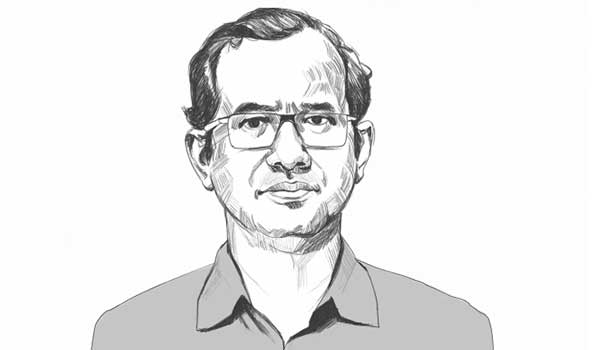
Power sector urgently needs a realistic financial framework – Dr Khondaker Golam Moazzem
Energy security is often discussed in abstract terms—megawatts, fuel mix, transition pathways, and long-term targets.
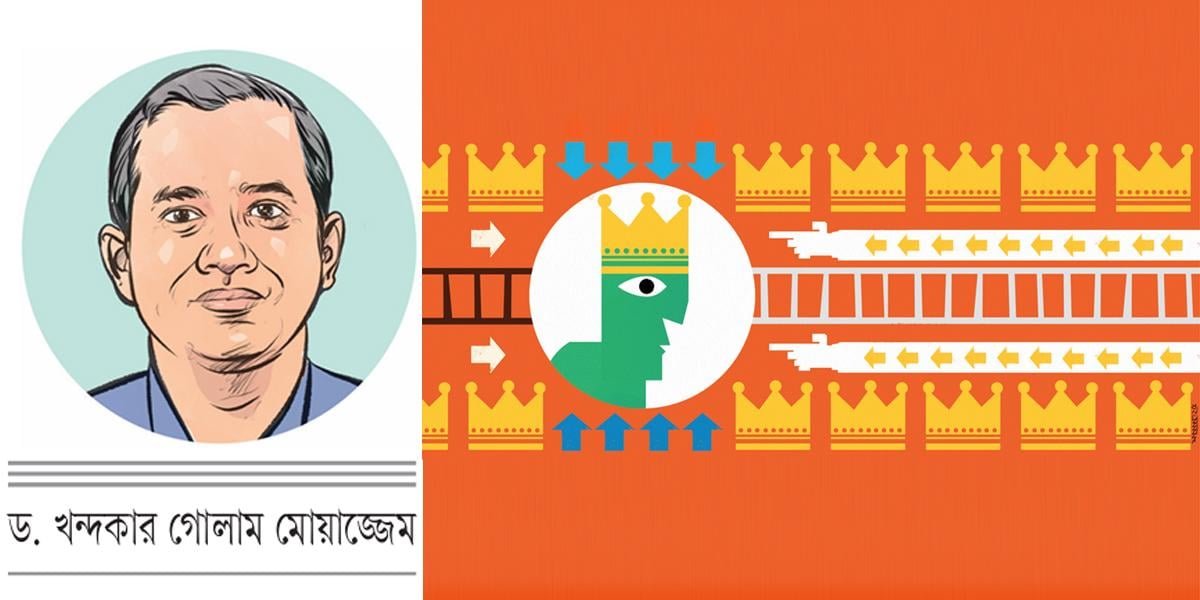
নতুন সরকারের জবাবদিহি থাকতে হবে – ড. খন্দকার গোলাম মোয়াজ্জেম
বাংলাদেশের জন্য ২০২৬ সাল অনেকভাবেই তাৎপর্যপূর্ণ। অন্তর্বর্তী সরকার নির্বাচনের মধ্যদিয়ে একটি রাজনৈতিক সরকারের হাতে দায়িত্ব অর্পণ করবে। কাজেই বলা যায়, বাংলাদেশে একটা রাজনৈতিক উত্তরণ হতে যাচ্ছে।
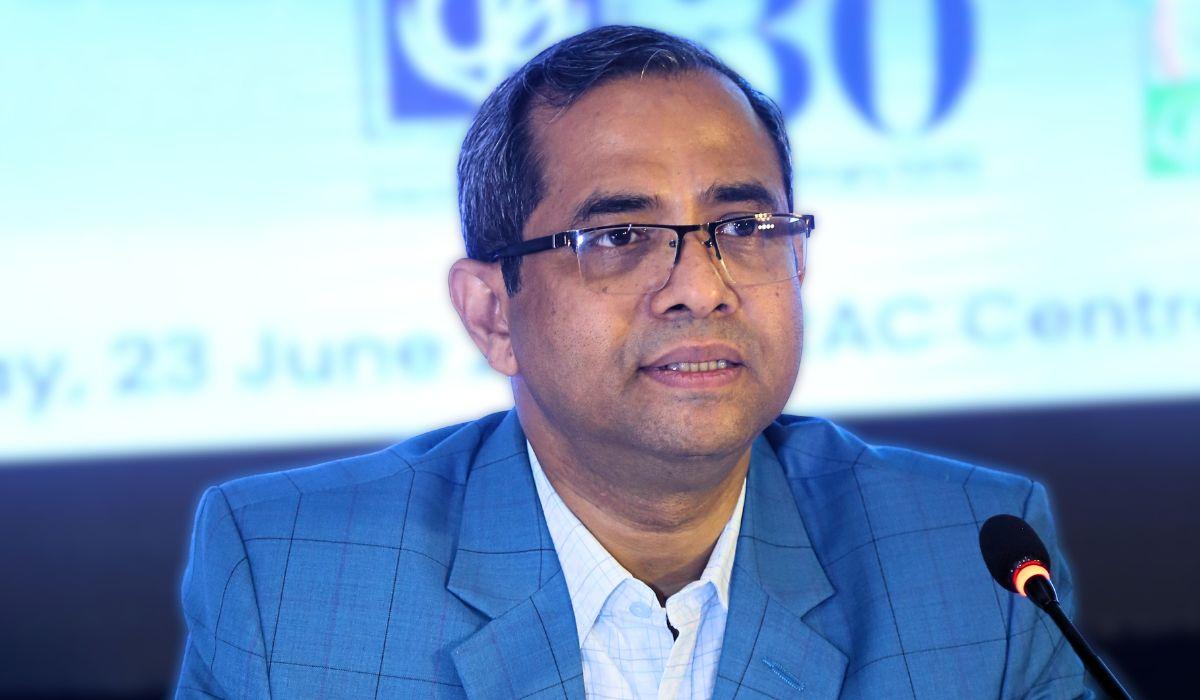
এটি ‘গণভোট’ নয় – ড. খন্দকার গোলাম মোয়াজ্জেম
সাম্প্রতিক সময়ে প্রথম আলোতে গণভোট নিয়ে প্রকাশিত লেখাগুলো প্রেক্ষিতে বিষয়টি আরও গভীরভাবে বিশ্লেষণের প্রয়োজন অনুভূত হওয়ায়, বাংলাদেশ ও আন্তর্জাতিক অভিজ্ঞতার আলোকে সিপিডি পার্লামেন্টারি স্টাডিজ এই গবেষণাধর্মী লেখাটি প্রস্তুত করেছে।

পাকিস্তানের সংবিধান সংশোধনে বাংলাদেশের জন্য যে শিক্ষা – ড. খন্দকার গোলাম মোয়াজ্জেম
গত ১৩ নভেম্বর পাকিস্তানের দ্বিকক্ষবিশিষ্ট সংসদ সংবিধানের ২৭তম সংশোধন অনুমোদন করেছে। পাঁচ দিনের উত্তপ্ত বিতর্ক, বিরোধী দলের বিরোধিতা এবং শেষ মুহূর্তের কিছু সংশোধনীর পর এটি নিম্ন ও উচ্চ উভয় কক্ষেই পাস হয়।

বাজার নিয়ন্ত্রণে তথ্য উপাত্তের স্বচ্ছতা নিশ্চিত করা দরকার – ড. খন্দকার গোলাম মোয়াজ্জেম
ভোজ্যতেলের দাম হঠাৎ বেড়েছে। রোববার ব্যবসায়ীদের সঙ্গে সভা করে সরকার প্রতি লিটার সয়াবিন তেলের দাম ছয় টাকা বাড়িয়েছে। ভোজ্যতেল মানুষের অত্যাবশ্যকীয় পণ্য। গ্রাহকের আয় বৃদ্ধির সঙ্গে সঙ্গে ভোজ্যতেলের চাহিদা বৃদ্ধি পাচ্ছে।

অভিজাততন্ত্র থেকে কি আমাদের মুক্তি নেই – খন্দকার গোলাম মোয়াজ্জেম
স্বাধীনতার পরের ৫৪ বছরে এবং ছয়টি বড় রাজনৈতিক পরিবর্তনের (১৯৭৫, ১৯৮১, ১৯৯১, ২০০৭ ও ২০২৪) পরেও বাংলাদেশ রাষ্ট্রের মৌল চরিত্র ‘গণপ্রজাতন্ত্র’ নিশ্চিত করা সম্ভব হয়নি।

শ্রম সংস্কার সরকারি উদ্যোগে স্বাধীন পর্যালোচনা – ড. খন্দকার গোলাম মোয়াজ্জেম
Originally posted in দেশ রূপান্তর on 26 October 2025 বৃৃহত্তর সংস্কার কার্যক্রমের অংশ হিসেবে সরকার অনেকগুলো সংস্কার কমিশন করেছিল। এগুলো ছিল ইতিবাচক পদক্ষেপ। তার মধ্যে শ্রম সংস্কার কমিশনকে অন্যতম অগ্রাধিকার হিসেবে বিবেচনা করা হয়েছিল। অন্তর্বর্তী সরকার যেসব বিষয়ে শুরু থেকে গুরুত্ব দিয়ে আসছিল, তার মধ্যে অন্যতম হচ্ছে শ্রমিকদের অধিকার, কর্মস্থলের নিরাপত্তা ও যুগোপযোগী শ্রম আইন […]
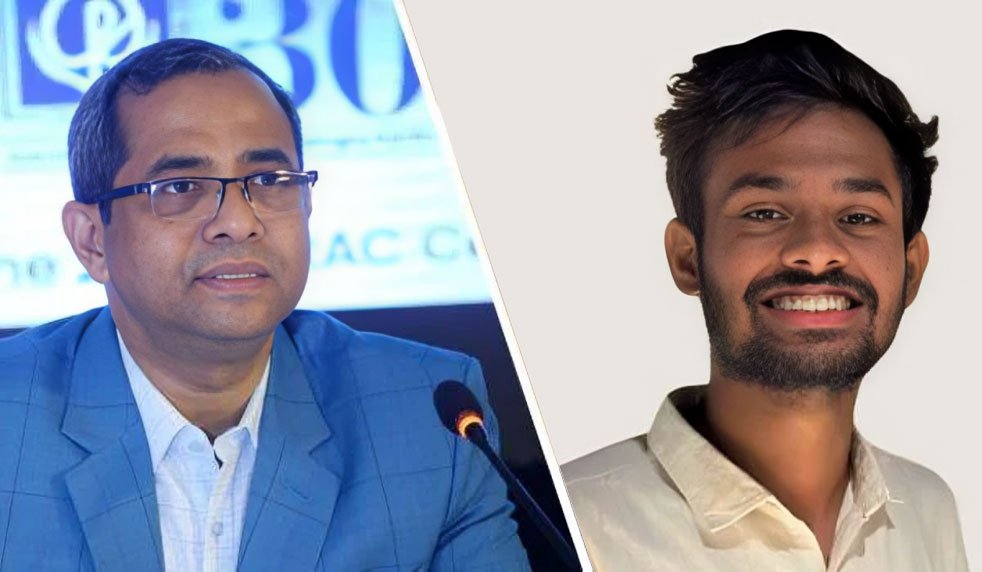
Bangladesh must shift from investment promotion to facilitation – Khondaker Golam Moazzem and Abrar Ahammed Bhuiyan
Earlier in April this year, when the Bangladesh Investment Development Authority (BIDA) organised the Bangladesh Investment Summit 2025, people expected investment to rise overnight.


